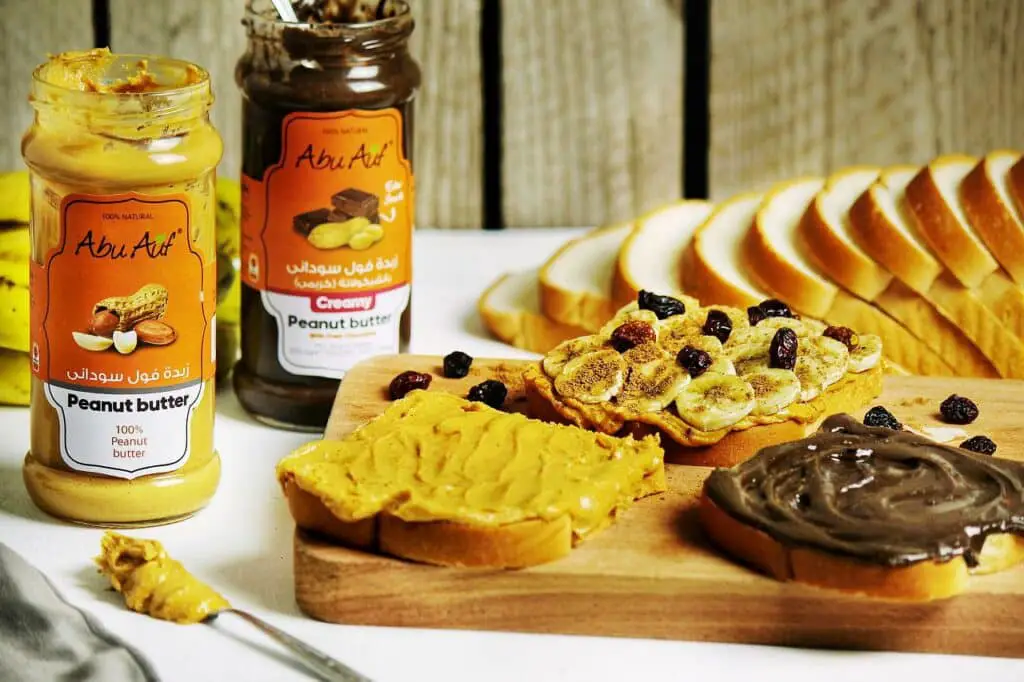Banana nut bread is a staple in almost every household.
Its delicious aroma is not only inviting to humans but to dogs too.
While nuts are some of the most common add-on ingredients for many banana bread recipes, some of them can be toxic for your dog.
So can dogs eat banana nut bread?
Yes.
A small bite of this bread is not enough to cause chaos in your dog’s system.
However, some nuts may be fatally toxic for dogs, including almonds, black walnuts, pistachios, and pecans, which can lead to acute pancreatitis.
Some dogs may also have allergies and other conditions.
This article will dive into all the information you need about banana nut bread and some of the dangers it may pose to your dog.
It will also help you understand situations where this bread may be toxic for your dog, requiring immediate vet care.

Potential health benefits of feeding your dog banana nut bread
While the excess sugars and fats added to the banana nut bread can be hazardous for your dog, it can benefit their health when given in small amounts.
- Binds foreign objects – Like most bread, banana nut bread binds swallowed foreign things like splintered bone bits or indigestible objects. This allows them to pass safely through the digestive tract but only if the pieces are small. For larger objects, check with your vet before offering bread for this purpose.
- Helps in constipation – Banana nut bread, especially whole wheat, helps the digestive system run smoothly. The bread holds together with water, adding bulk to the stool allowing your dog to pass it easily.
- Potassium – Banana nut bread is loaded with potassium which aids in the functioning of electrical charges in the heart, nerves, and muscles. It also helps regulate your dog’s blood pressure and fluid levels in the body.

Health risks of banana nut bread in dogs
Feeding your dog banana nut bread may not be toxic.
However, if your pup ingests a significant amount of the banana nut bread, the toxins can build up, causing severe problems.
While this is true, there are some situations where you should avoid giving your dog banana nut bread as some dogs may have preexisting conditions like diabetes or even allergies.
Wheat allergies and gluten
Most banana nut bread recipes call for wheat flour which contains gluten that may be incompatible with some dogs because of allergies.
If your dog is allergic to wheat, the banana nut bread might trigger a reaction.
That is why you need to be sure your dog can safely consume it.
You can try alternative flours like almond, rice, coconut, or oatmeal if you intend to share a bite with your pup.
Weight gain
Banana bread, like all bread, offers your dog little nutritional value.
You should only think of it as an occasional snack and not as a diet staple.
The less bread you give your dog, the better since the processed carbs found in the banana nut bread are high in sugar, leading to weight gain.
If your dog overeats this bread, it can cause further problems like obesity, high blood pressure, heart disease, and joint pain.
Tooth decay
The excess sugars in the banana nut bread can wreak havoc on your dog’s teeth as they tend to cling to their teeth and gums.
The sugars draw bacteria to the teeth causing cavities that result in periodontal disease.
Respiratory issues
The yeast used in the banana nut bread-making process is one of the most toxic ingredients your dog can consume.
This is because your dog’s stomach offers an optimum setup for the yeast to activate, causing the dough to continue to rise.
As the dough puffs up and ferments in your dog’s stomach, it can cause vascular distention while compromising the blood supply in the walls of its stomach.
This results in respiratory issues.
While this is happening, your dog’s digestive system will release toxic levels of ethanol into its bloodstream leading to bloating and GI distress.
Even worse, causing alcohol toxicosis.
Symptoms of alcohol toxicosis include:
- Weakness
- Seizures
- Loss of bladder control and coordination
- Coma
- Bloated stomach with unproductive vomiting or gassiness
- Behavior changes such as strange vocalizations or random barking
Low blood sugar and liver failure
Some banana nut bread may include an artificial sweetener called xylitol which is highly toxic for dogs.
Xylitol causes a rapid and massive insulin release in dogs that may cause low blood sugar, acute weakness, liver failure, seizures, or death.
Can dogs eat banana nut bread?
Yes.
Allowing your dog to nibble on a crumb of your toast won’t hurt him.
You only need to be aware of all the ingredients that may be toxic for your dog, especially some nuts, sugars, and fats.
Remember that bread, including banana nut bread, is a human food with little to no nutritional value for your pup’s balanced diet.
Only give him as an occasional snack in small amounts and not as a mainstay diet.
Can a diabetic dog eat banana nut bread?
For a diabetic dog, feeding him banana nut bread will only worsen his condition.
Banana nut bread contains excess sugars that may spike your dog’s blood sugar levels leading to insulin resistance or death.
Can banana nut bread kill a dog?
Can banana nut bread kill a dog?
Yes.
If too much banana nut bread is consumed in one sitting, it may lead to death, especially for dogs with preexisting conditions like diabetes or other heart-related problems.
Some dogs may also be allergic or intolerant to bread, and if you feed them too much of the banana nut bread, they may become severely ill or even die.
You should only feed your dog banana nut bread containing only the safe nuts like roasted cashews or peanuts to prevent poisoning.
Avoid nuts like macadamia, pistachio, pecans, almonds, or black
In conclusion
For dogs, bread, including banana nut bread, has no nutritional value.
It only gives them the usual joy they feel when allowed to have a bite of our food.
It’s best to consult your vet before adding new foods or treats to your dog’s diet, as they have different digestive systems to ours.
Consulting the vet helps you to understand which foods to avoid to prevent poisoning, while ensuring your dog is healthy and happy.
- What Dog Breeds Have Pink Skin? - March 24, 2023
- What Are the Most Inspiring Dog Breeding Quotes? - March 20, 2023
- Can Pheromone Spray Help Improve Dog Breeding Results? - March 19, 2023








